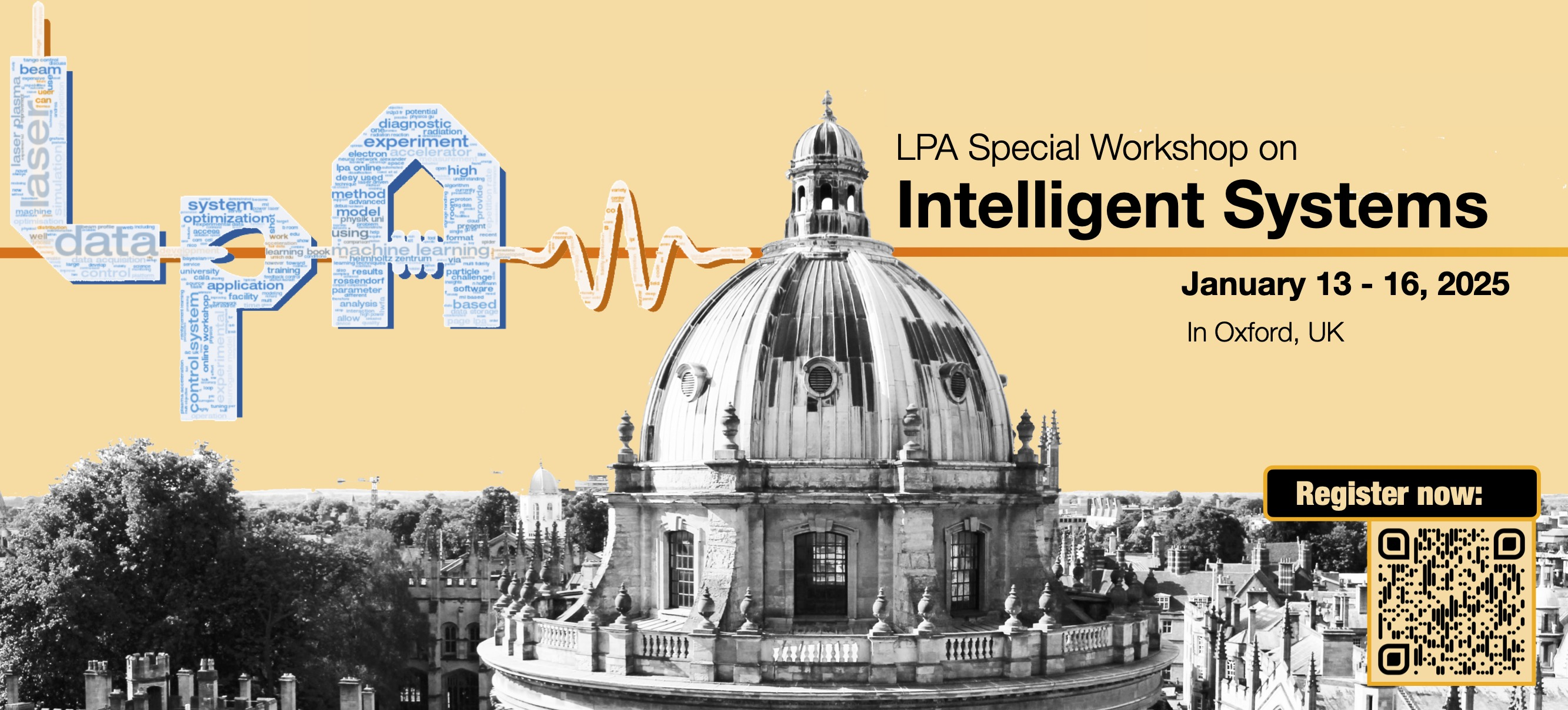Note: Registration for remote participation is now open. Click here to register. To register for hands-on tutorials, click here (limited to on-site participants).
We are proud to announce that the 2nd LPA Special Workshop with its focus on "Intelligent Systems" will be held at the Department of Physics of the University of Oxford from January 13 to 16, 2025. The event will be held in conjunction with the THRILL workshop on adaptive optics integration.
The workshop aims to cover the full spectrum of automation and intelligent control in high-power laser and laser plasma acceleration (LPA) facilities.
Our scope encompasses both hierarchical viewpoints - including facility-level, experiment, and laser automation - and conceptual aspects such as advanced diagnostics, storage and extended data access, control system interfaces, as well as feedback and tuning. The workshop builds up on the 2022 event.
Participants can look forward to a diverse program featuring plenary talks, invited contributions, interactive discussion sessions, and informative tutorials. Additionally, attendees will have the opportunity to present their work through poster contributions (click here to submit your abstract). We welcome submissions related to all of the above topics, including but not limited to:
- Bayesian optimization for LPA parameter tuning
- Machine learning approaches for real-time diagnostics
- Adaptive feedback control systems for laser stability
- Automated alignment and beam steering techniques
- Data-driven modeling of plasma acceleration processes
- AI-assisted simulations and diagnostics
- Intelligent fault detection and predictive maintenance in LPA facilities
A limited number of submissions may be upgraded to contributed talks upon availability. You can actively contribute to the conference organization via early registration (before October 1). By sharing your interests at registration, you will help us tailor the workshop program to better suit the community's needs. For those interested, an optional visit to the Extreme Photonics Applications Centre at STFC’s Harwell Campus will be arranged on Friday, January 17.
We are pleased to offer free admission to the workshop. We extend our gratitude to the Department of Physics at Oxford, the Central Laser Facility at STFC, AI for Realistic Science, and the THRILL project for their support. This workshop is supported by
![]()
![]()
For questions, please contact Ms. Ivy Nandongwa (ivy.nandongwa@stfc.ac.uk).
